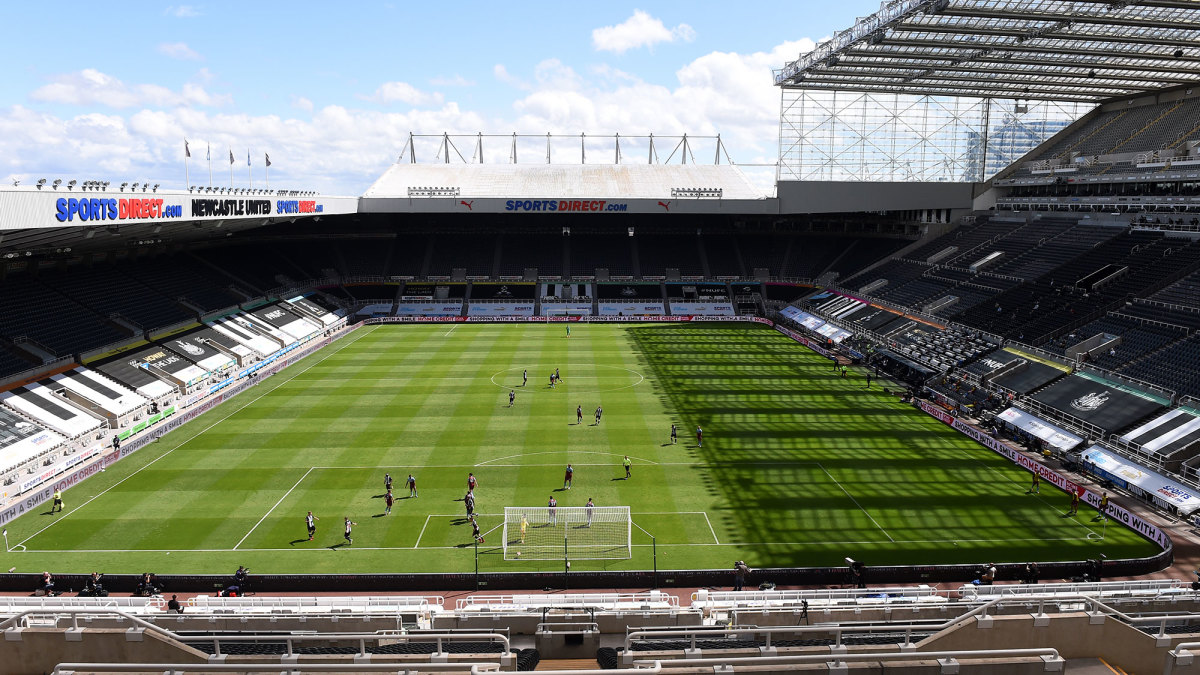There's Plenty of Shame to Go Around Over Saudi Arabia's Newcastle Takeover
How times change. Three years ago, Chi Onwurah, the member of Parliament for Newcastle Central stood up in the House of Commons and, addressing the murder of Washington Post journalist Jamal Khashoggi at the Saudi embassy in Istanbul, asked Foreign Secretary Jeremy Hunt to acknowledge that Mohammed bin Salman was “the autocratic ruler of what is now shown to be a murderous state.” Now she celebrates the “persistence and determination” of Newcastle fans in exposing the “anticompetitive and unaccountable behavior” of the Premier League in initially blocking the Saudi takeover of Newcastle United.
She is far from alone in her hypocrisy (the MP for Wansbeck, Ian Lavery, a season-ticket holder, vowed never to set foot in St James’ Park as long as the payday loans company Wonga was shirt sponsor, but last year was agitating for a parliamentary investigation into the Premier League decision to block the takeover). Onwurah’s shameless playing to her base, though, remains startling. But then this is modern British politics in which consistency exists as a dream from a distant world long before truth and decency died.
That the Saudi bid was previously blocked and has now passed, as Onwurah must know, has nothing to do with any of the ill-conceived campaigns by Newcastle fans—abusing Khashoggi’s widow on social media, attacking Amnesty International, bullying any journalist or fan who dared raise any quibbles or objections ... well done, everybody!—and nor was it remotely unaccountable or anticompetitive. It was, very clearly about broadcast rights.
The Saudi state had blocked the Qatari company beIn sport, which owned the rights to broadcast the Premier League to the Middle East, while the mysterious beoutQ Sport pirated their feed and broadcast within the kingdom. The Premier League insists it blocked the takeover because Form 4, relating to the Directors and Owners test, had not been filled in. But the only logical reason why that had not been filled in then and has been filled in now, is that the Public Investment Fund knew it would fail while the piracy issue remained unresolved. As soon as that blockade was lifted, the deal became possible. For all the concerns about human rights abuses, that was never the issue for the Premier League.
And neither, it turns out, were the concerns about the PIF and the Saudi state being one and the same thing (which would be contrary to Premier League regulations). The Saudi minister responsible for stopping piracy is Majid Al Qasabi, who sits on the PIF board. Restoring PIF’s license required him to engage directly with the Saudi General Authority, which makes a mockery of any claims of separation. The Premier League seems to have given up on any attempt to investigate that in July, at around the same time that the Qatari chairman of beIN, PSG president Nasser Al Khelaifi, had informal talks with PIF in Doha, in the first meeting between beIN and the Saudi state after the blockade was lifted.
Yet all of this feels beside the point, which is that a state that is widely believed to have had a journalist murdered, that routinely sentences its critics to be flogged, where torture is commonplace, women’s rights extremely limited and homosexuality illegal, is taking over a Premier League football club.
Newcastle is not the first club to be taken over by a state with an extremely questionable human rights record. Newcastle can rightly point out that if Abu Dhabi was allowed to buy Manchester City, there is no reason to stop the Saudis. The bigger issue is that no states should be permitted to own clubs, and that funneling ownership through a sovereign wealth fund shouldn’t be an easy workaround. And questions can be asked, too, about those clubs run by oligarchs. But what is shocking is how routine this feels, yet another venerable British institution sold off to an effectively unaccountable foreign investor, any ethical concerns forgotten.
The equivocations of Newcastle fans (including MPs and journalists) have been depressing to witness: The whataboutery; the claims of a conspiracy by the existing Big Six; the pretense that the Saudi state will be liberalized by contact with Tyneside; the appeals to how much they have suffered under the ownership of Mike Ashley. It hasn’t been a great run for the club, but an average 13th-place finish isn’t exactly being sentenced to 50 lashes a week for 20 weeks like the dissident blogger Raif Badawi. But who cares about human rights when you might at last be signing a center forward?
Quite how expansive PIF’s plans are is, as yet, unclear, although early suggestions are that there will be no great splurge on players. Certainly the potential is huge, with Financial Fair Play legislation revealed as toothless and the wealth of the Saudi state amounting to more than three times that of the rest of the Premier League owners put together.
And that, sadly, is all that seems to matter. Nobody is expecting Newcastle fans to renounce their club, but wildly celebrating the takeover and potential signings, offering barely a murmur of concern, is shameful. But that is modern football, and modern Britain: Ask not where the money came from, ask only what it can buy.
More Soccer Coverage:






